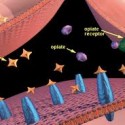Binge drinking a continuing problem among underage Oregonians
A year ago, a booze-fueled spring break trip was all the news when two Portland State University basketball players got into a drunken brawl in Mexico.
That donnybrook drew lots of attention because athletes were involved. But it was otherwise unremarkable: Studies show that, while students don’t necessarily drink more on spring break, those who travel with friends are more likely to pass their vacation nights in full debauch.
What’s more worrisome to many health experts, educators and parents is how many young people, especially girls, act like they’re on spring break year-round. A surprisingly large number of Oregon students drink five or more alcoholic beverages in a row, what experts call binge drinking. That includes more than 10 percent of Oregon eighth-graders.
In fact, 90 percent of the alcohol drunk by people under 21 is consumed in “binge drinking” episodes, according to the U.S. Centers for Disease Control. And psychological surveys say that a quarter of young men and 14 percent of young women have experienced alcohol dependence, a diagnosable drinking problem.
“They’re drinking to get drunk,” said Emily Moser, director of parenting programs for the Oregon Partnership, a nonprofit that fights substance abuse. “Teenagers won’t think twice about taking three shots in a row, because that’s their purpose.”
Recent increases in binge drinking among girls especially worry experts. Eighth-grade girls now drink more than eighth-grade boys, and have since 2004, according to national surveys.
“It’s just part of a culture; girls are now doing what guys used to do,” said Pete Schulberg, a spokesman for the partnership.
Surprisingly, those girls go for the hard stuff. Moser said hard alcohol is girls’ drink of choice over beer. And not just the bright-colored, fruit-flavored bottled cocktails that opponents call “alcopops.”
“If they have a choice between the alcopops and a vodka drink, they’re going to go for the vodka,” Moser said.
Kids going on benders face a host of drinking problems that are different from chronic, adult alcoholics. A 12-year-old’s not going to have cirrhosis. But if they binge drink, they can wind up in the hospital for alcohol poisoning.
Young people who drink to get drunk are also more likely to be raped or rape someone else, have unsafe sex and catch a disease, drive drunk, fall or get into a fight. Since people’s brains develop through their early 20s, children who drink heavily or regularly also change their patterns of brain development.
And kids who drink are more likely to turn into those adult alcoholics with bad livers. Moser said children who drink before 15 are four times more likely to have alcohol problems as adults. That rises to eight times the risk if they also have a family history of alcohol problems.
Health officials and nonprofits have launched a host of efforts to warn kids and parents about the risks of binge drinking. In November, a task force presented Gov. Ted Kulongoski a five-year plan to fight underage drinking in Oregon, which called for more than $15 million in efforts, including programs to prevent youth drinking and addiction treatment.
The Oregon Liquor Control Commission, Department of Human Services and Oregon Partnership recently teamed up to put signs in liquor stores warning parents that most kids get their alcohol at home (or at a friend’s home).
The partnership also launched a special spring break campaign to help parents head off drinking. Studies show the busier kids are, the less likely they are to drink.
“It doesn’t mean they have to be in ballet lessons or cello lessons,” Moser said. “It doesn’t have to be expensive.” Talking or traveling with your kids or having them attend school or youth groups works just fine.
Parents also need to know how their kids normally act to look for signs they may be drinking. A list of possible symptoms isn’t always useful, because the signs of drinking are sometimes normal for teenagers — sleeping a lot, hanging out with new friends and so on. The key, Moser said, is to look for behavior that is dramatically different from how your child acted before, then ask about it.
Studies show parents can have an impact on youth drinking by securing their alcohol at home and sharing their health concerns and values about drinking with kids.
source: The Oregonian
